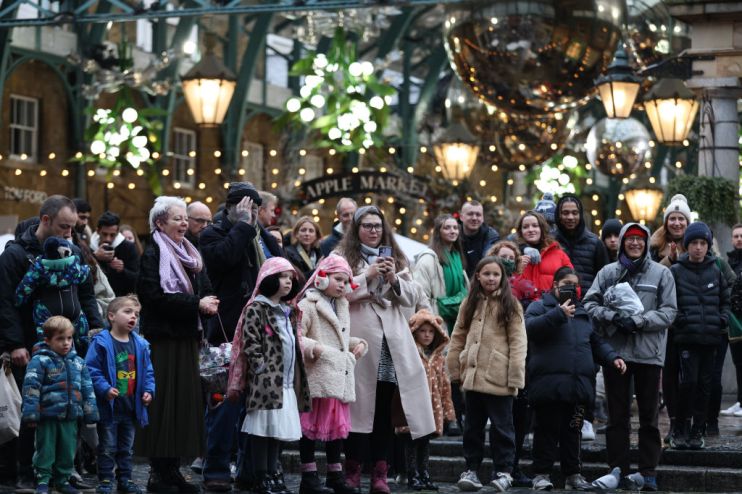Naughty or nice: Big Tech is eyeing up our kids for their Christmas wishlist

Christmas is coming and the Amazon parcels are gathering in drifts of tech gifts around Christmas trees all over the world. This year, again, Christmas wishes are being realised online as we wonder nervously whether we might be able to visit family for Christmas or if new travel restrictions may thwart Santa’s plans too.
Like most parents around the world, as I choose what to pick from the endless list of technology requests, I am stuck in a dilemma with the Ghost of Christmas Future breathing down my neck. I want my daughter to embrace a technological future. But I want to know that it is a future that will keep her, and her generation’s children safe and free, both mentally and physically.
Technology has proved to be a vital tool for all of us over the past two years. It has allowed children to study and play with each other when their schools were closed. Kids have been able to reach out across the ether to keep in touch with grandparents, trapped in lockdowns or behind closed borders at opposite ends of the world. But it has also given us a window into a darker world.
Since the start of the pandemic, we have had to deal with the very real horror of zoom-bombing, the battle with gambling adverts on cute, cuddly, kids’ apps and malware bombarding devices with pornography even when locked, unused, in a cupboard with parental controls. This is not the daily reality in the quiet, suburban real world outside our door (though what goes on behind closed doors may well be different). But it is the parallel world that the portal of technology drags us to, kicking and screaming.
And in an increasingly connected world, it can feel crushingly inescapable, particularly when the general response from those supposed to be policing these things is to shrug and wish you luck.
Aside from the encroachment of the darker sides of the internet, we have all experienced the lures of digital distraction in lockdown. And the ways technology gets inside our heads and shifts our opinions of ourselves, and others has real world consequences. Covid-19 has been accompanied by a mental health pandemic. While the connections made through the internet may have helped children through this time of crisis, revelations from the whistle-blower Frances Haugen have demonstrated the very real impact that social media can have on children’s minds. According to the documents leaked by Haugen, Facebook’s own internal research found that almost a third of teenage girls said that when they felt bad about their bodies, Instagram made them feel worse; teens blame the platform for increased rates of anxiety and depression.
Earlier this year, research by the organisation Reset Australia showed that for a few dollars you could buy targeted advertising and access to thousands of teenagers for dubious activities like gambling, smoking, drinking and extreme weight-loss based on their inferred interests. Targeting children’s minds shores up sales not just for now, but for the future. It is not only Santa who is making a list and checking it twice. All our children’s activities in the digital world may be being collected and used to profile them, identifying what they like, and where their weaknesses might be to exploit or pigeonhole them. But the data gathered by the data brokers who hoard information harvested on all of us across the digital space will be used to judge who is naughty or nice forever.
In March this year, the United Nations Committee on the Rights of the Child issued a General Comment on children’s rights in the digital environment, the first comprehensive international analysis of the many ways that technology affects children’s rights, both positively and negatively. But the real key to protecting our children and our digital future will be effective law and regulation with human rights at its core.
This Christmas, the Online Safety Bill represents the UK Government’s attempt to grapple with the issues. And in the EU, the Digital Services Act, the Digital Markets Act and the AI Act, while hotly debated, may mould the future of digital rights in Europe and beyond. Is this a turning point? And will it be enough? Whatever decisions are made about our digital futures in the corridors of regulatory power around the world, they need to make sure that they put the best interests of the child first.
As campaigners in the UK threaten legal action against the Information Commissioner’s Office for failing to use the existing framework to prevent children’s access to porn sites, it is clear that we don’t just need rules, we need action. All our future Christmases depend on it.
